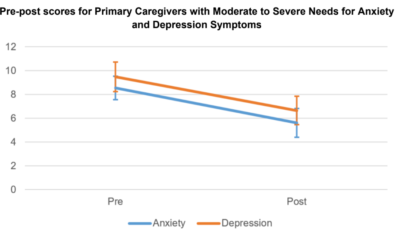
The Gen XY Lifestyle
Mental health and stress in Southeast Asia
Respondents in Singapore and the Philippines most stressed across region, with only half of the respondents willing to seek help if stress is overwhelming.
Milieu for Good, a programme run by Milieu Insight conducted a survey in in partnership with Calm Collective about consumer sentiments towards stress on their mental health and their views on seeking help,
The survey polled 6,000 respondents in Singapore, Malaysia, Indonesia, Philippines, Thailand and Vietnam.
It is important that we band together to find ways to help the broader community deal better with stress. I hope the insights from this study can provide a sense of comfort to those feeling the burden of stress on their mental health that they are not alone in dealing with these challenges. Employers also need to recognise that chronic stress and its related illness caused by a poor working environment can be as serious as a physically unsafe environment.
Milieu Insight’s Co-founder and CEO, Gerald Ang
Survey highlights
About finding and recognising stress
- Percentage of respondents agreeing that it is stressful living in their countries: Singapore (81 percent), the Philippines (78 percent), Malaysia (61 percent), Thailand (59 percent), Indonesia (51 percent) and Vietnam (42 percent).
- Across the 6 countries, respondents from Singapore (20 percent) and The Philippines (15 percent) felt that they do not handle stress well.
- More than half of respondents from Indonesia and Vietnam felt that they were good at handling stress.
About factors contributing to stress
- Financial situations, personal relations, responsibilities as well as work and study commitments, were generally the top factors of stress,
- For respondents from The Philippines, traumatic experiences were also a top factor. In Singapore, self-confidence was also a high stress factor.
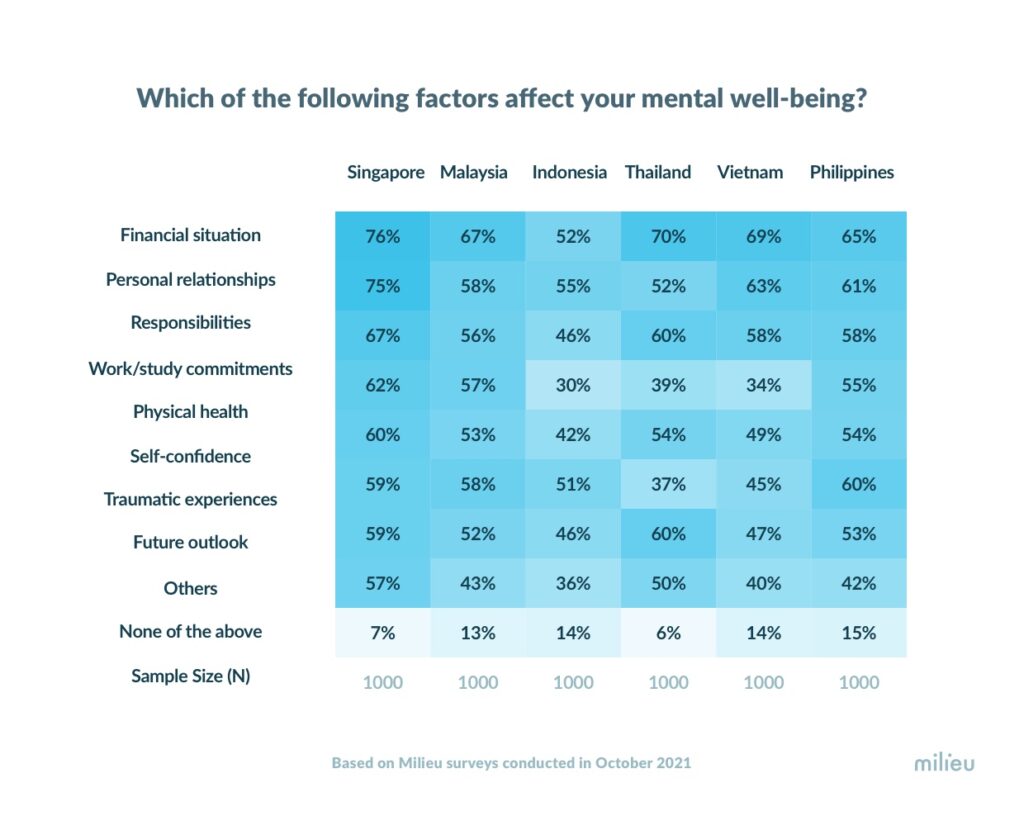
About reaching out for help and support when feeling stressed
- Singapore respondents (67 percent) are averse towards reaching out for help and turning down extra work even if they already have enough on their plates.
- This is due to a fear of offending others at work, with only 62 percent saying that they think their colleagues or bosses would be accepting if they were to turn down additional work assigned to them.
- Contrast with Singapore, respondents from The Philippines (87 percent) would reach out for help and 97 percent indicated that they would help their colleagues even if they are busy.
- This is fairly indicative of the region with about 90 percent of respondents saying they would agree to help their colleagues with work even if they are already busy.
- However, most respondents who are stressed did not seek help as they did not want to be a burden to anyone.
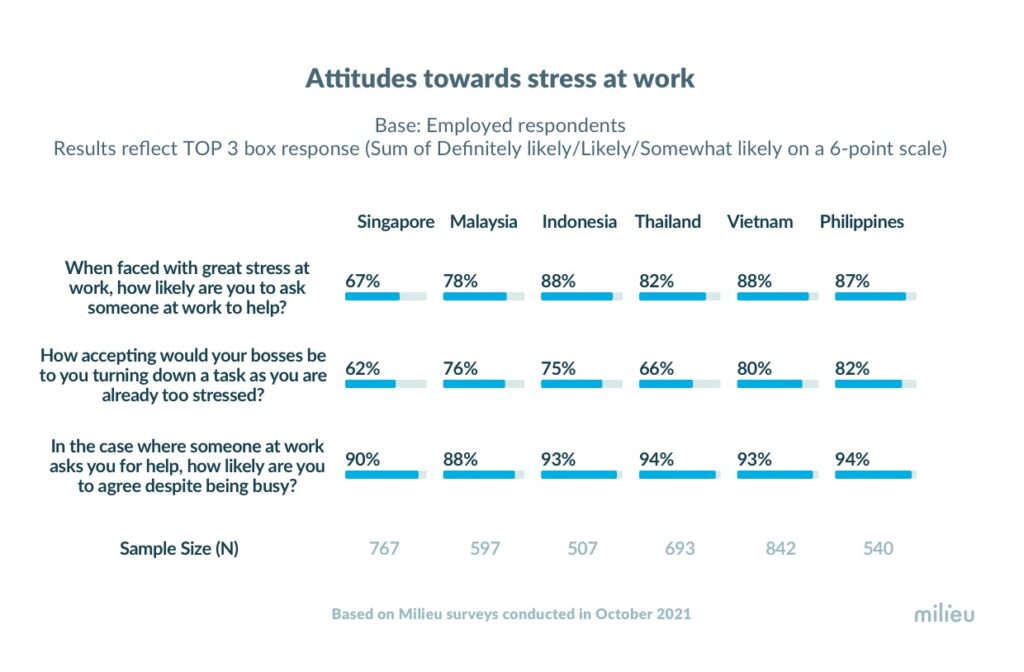
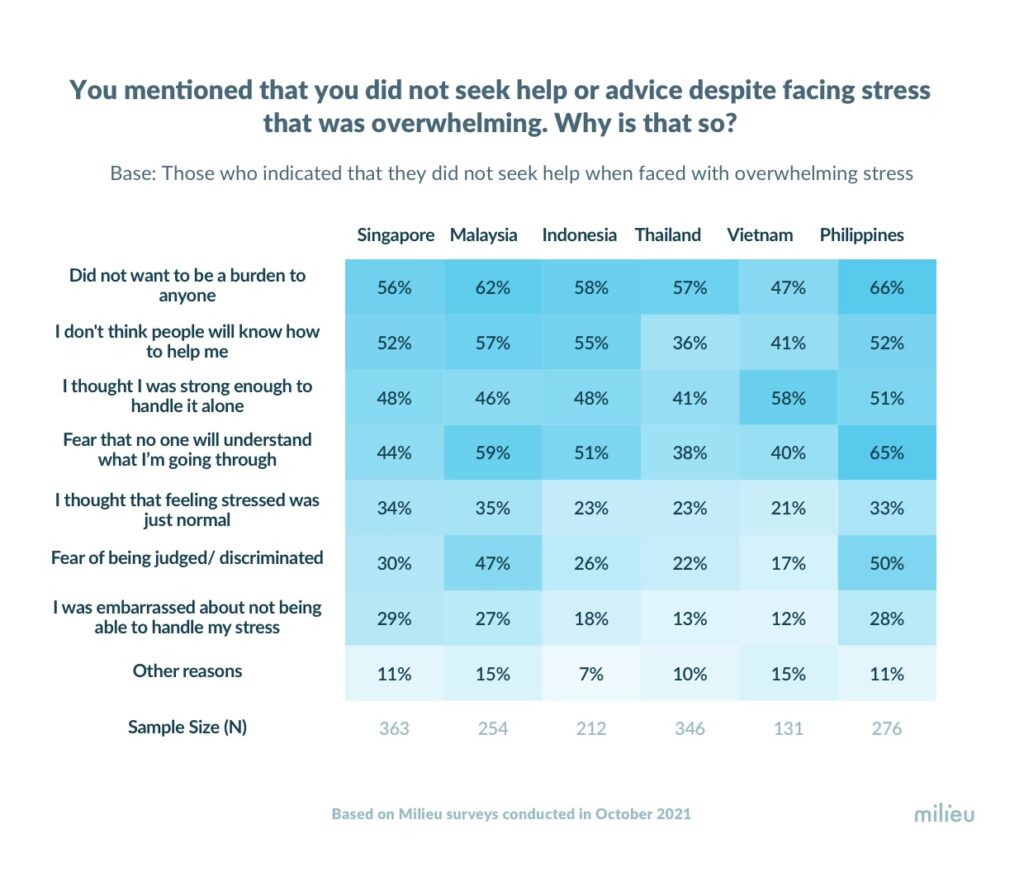
About a contrast in behaviour between valuing mental health and getting professional help for stress
- More than two-thirds of respondents say that they proactively care about their mental health
- Aside from Vietnam and Malaysia, 53 percent in Singapore and close to half of respondents in Indonesia (49 percent), Thailand (49 percent) and The Philippines (46 percent) are willing to seek professional help only after stress gets too overwhelming.
- Burnout and even ‘death by overwork’ were major issues long before the coronavirus arrived. Despite that, stress still seems to be viewed primarily as a personal problem that should be handled alone and many regard it as a feeling that will just get better with time.
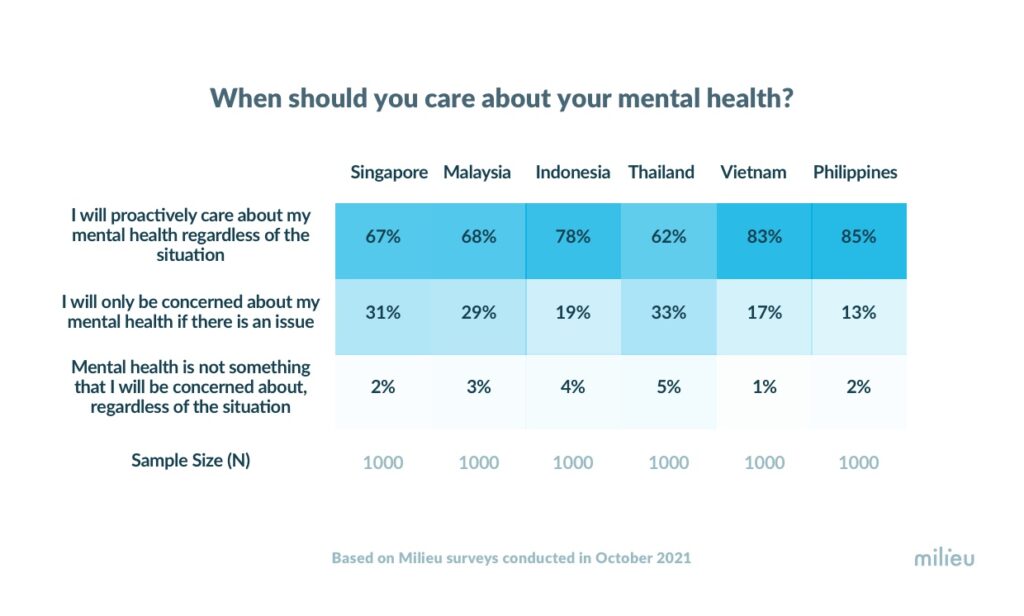
Survey graphics provided by Milieu Insight. Feature Photo by Gabrielle Henderson on Unsplash.


